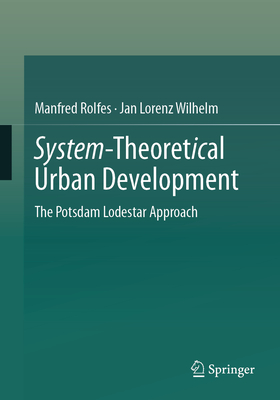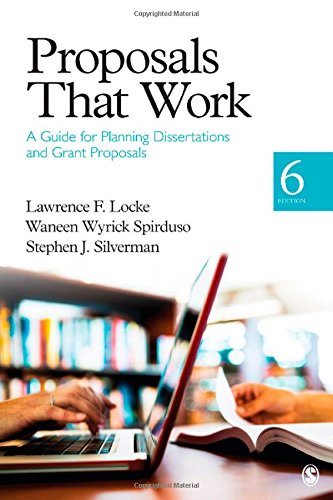图书简介
In their book, the authors introduce the topic of urban development from a systems (theoretical) perspective and provide explanatory approaches, tips and methodological instructions for dealing with urban complexity. Knowing full well that this sometimes amounts to squaring the circle, the authors draw on applied systemic approaches and systematically couple these with epistemological currents that can be assigned to Luhmann’s systems theory. The social understanding of this theory of social systems represents a very good starting point for understanding urban development and urban complexity. From this perspective, urban development can be seen as a process in which organisations and individuals with their own expectations and perspectives are involved, in which contradictions and conflicts seem inevitable and the future cannot be clearly predicted. Decisions in cities and municipalities are therefore always associated with risks, irritations and unexpected consequences. With the Potsdam lodestar approach, Rolfes and Wilhelm present a multidimensional approach to managing urban development processes. The approach distinguishes five process dimensions, which are presented chapter by chapter and linked with recommendations. The individual chapters are structured along guiding questions and feature appealing visualizations and numerous bonus materials.
Introduction.- Urban development and urban complexity.- Urban development.- Task areas of cities and municipalities.- New tasks and communication structures (in) the municipality.- Challenges and problem orientation of politics and administration in the municipality.- Overall social trends and urban development.- Complexity in urban development.- Conclusions.- System(theoret)ic approaches in urban development: development history, perspective and basic positions.- The systemic approach and its system-theoretical background.- System-theoretical insights and core ideas.- Development history of the systemic approach.- City and urban development from a more theorizing perspective.- City and urban development from a more application-oriented perspective.- Self-understanding and basic positions of system(theoret)ic approaches in urban development. City from a systems (theoretical) perspective.- City and urban development from a more theoretical perspective.- City and urban development from a more applied perspective.- Self-conception and basic positions of systems (theoretical) interventions in dealing with urban complexity.- Self-conception.- Four basic positions.- Concluding remarks.- Introduction to the Potsdam lodestar approach.- Starting points and emergence of the Potsdam lodestar approach.- Basic structure of the Potsdam lodestar approach.- Dealing with the lodestar approach and structure of the sections.- Process dimension of control - Art of mediation and negotiation.- What is control? Between optimism and scepticism.- Forms of control: Self-control and contextual control.- Forms of control in urban development practice: knowledge is power.- Recommendations for practice: the guiding principle of soft control.- Control through boundary planning: fields of action, phase models and architecture.- Control through knowledge: Discursive practices, questions and explicitation.- Steering through relationship: trust, appreciation and role clarification.- Concluding remarks.- Process dimension alignment - establishing a future perspective.- The problem with the problem.- On the importance and risk of imagining the future.- Recommendations for practice: concern clarification, vision work and strategy work as three directional fields of work.- Concern clarification - looking ahead from the beginning!.- Vision work - the development of future.- Strategy work - operationalising the path to the future and keeping an eye on it!.- Concluding remarks.- Process dimension of system analysis - creating common hypotheses of reality.- The great importance of analyses and scientific expertises.- Gaining knowledge - expertises for illuminating ’new facts’.- Legitimation - expertises for the assertive presentation of ’known facts’.- On the opportunities and limits of spatial analyses.- Stabilizing functions of spatial approaches and analyses.- Risks of spatial observation and analysis.- Communicability of expert knowledge and analysis results.- Challenges of analytical and expert-generated knowledge.- The art of connectivity.- Recommendations for practice: the three-dimensional spatial system analysis.- Analysis of the process and network level.- Spatial and subject-specific analyses.- Reflection on the analysis findings.- Concluding remarks.- Process dimension of cooperation - Participants and bridging system boundaries.- Participants in the urban cooperation network: organizations, persons, networks.- Organizations - departments.- Interaction systems and persons.- Co-irritation, cooperation, co-evolution of participants.- Networks for bridging sense and system boundaries.- Citizen involvement and participation.- Your opinion matters to us! Really?.- Explanation of terms: Participation - Participation.- Target groups and their activation.- Modes of urban cooperation.- Conflictual cooperation a
Trade Policy 买家须知
- 关于产品:
- ● 正版保障:本网站隶属于中国国际图书贸易集团公司,确保所有图书都是100%正版。
- ● 环保纸张:进口图书大多使用的都是环保轻型张,颜色偏黄,重量比较轻。
- ● 毛边版:即书翻页的地方,故意做成了参差不齐的样子,一般为精装版,更具收藏价值。
关于退换货:- 由于预订产品的特殊性,采购订单正式发订后,买方不得无故取消全部或部分产品的订购。
- 由于进口图书的特殊性,发生以下情况的,请直接拒收货物,由快递返回:
- ● 外包装破损/发错货/少发货/图书外观破损/图书配件不全(例如:光盘等)
并请在工作日通过电话400-008-1110联系我们。
- 签收后,如发生以下情况,请在签收后的5个工作日内联系客服办理退换货:
- ● 缺页/错页/错印/脱线
关于发货时间:- 一般情况下:
- ●【现货】 下单后48小时内由北京(库房)发出快递。
- ●【预订】【预售】下单后国外发货,到货时间预计5-8周左右,店铺默认中通快递,如需顺丰快递邮费到付。
- ● 需要开具发票的客户,发货时间可能在上述基础上再延后1-2个工作日(紧急发票需求,请联系010-68433105/3213);
- ● 如遇其他特殊原因,对发货时间有影响的,我们会第一时间在网站公告,敬请留意。
关于到货时间:- 由于进口图书入境入库后,都是委托第三方快递发货,所以我们只能保证在规定时间内发出,但无法为您保证确切的到货时间。
- ● 主要城市一般2-4天
- ● 偏远地区一般4-7天
关于接听咨询电话的时间:- 010-68433105/3213正常接听咨询电话的时间为:周一至周五上午8:30~下午5:00,周六、日及法定节假日休息,将无法接听来电,敬请谅解。
- 其它时间您也可以通过邮件联系我们:customer@readgo.cn,工作日会优先处理。
关于快递:- ● 已付款订单:主要由中通、宅急送负责派送,订单进度查询请拨打010-68433105/3213。
本书暂无推荐
本书暂无推荐















